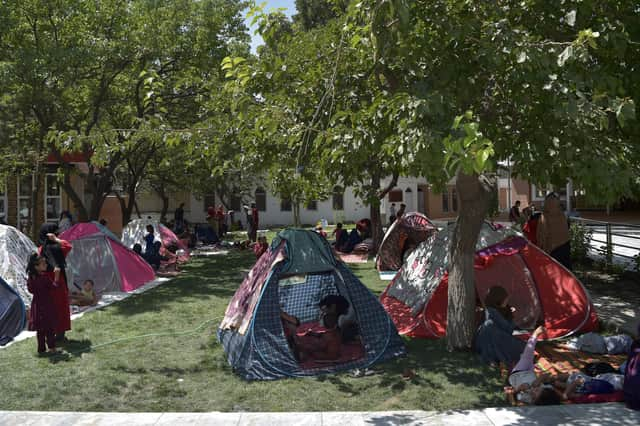Afghanistan: West's 'catastrophic' withdrawal leaves a sour taste as Taliban take control – Scotsman comment


The capital Kabul may come under attack within 30 days and the Taliban could potentially be in control of the whole country within a few months, according to an assessment by the US military.
While the US has warned that its forces will respond if they are attacked before they withdraw fully, the Taliban currently appears content to usher them out, keeping just close enough on their heels to make it feel like defeat for the West as much as the Afghan government.
Advertisement
Hide AdAdvertisement
Hide AdThe UK had little choice but to follow their coalition partner’s lead, but this was not the way British ministers, who failed in an attempt to set up a new force with France and Germany, wanted to leave.
Defence Secretary Ben Wallace said it was “not the right time or decision to make”, warning of the threat to global security posed by failed states and that al-Qaida would “probably” come back.
While Donald Trump announced the withdrawal plan in February 2020 – which Wallace said had been a “mistake” – his successor in the White House, Joe Biden, could have done things differently if he wanted.
Former UK International Development Secretary Rory Stewart was much more forthright than Wallace, calling the withdrawal a “betrayal” and a “catastrophic failure” by the US, UK and Nato. “This is totally heart-breaking and totally unnecessary. There was no reason for us to do this, and by doing this we've broken Afghanistan in a matter of weeks,” he said.
The consequences can already be seen in the numbers of refugees camping in tents in Kabul or fleeing to neighbouring countries. And they have good reasons to be afraid.
The Taliban may be attempting to present their softer side to the world’s media, but they are infamously brutal with women in particular at risk of summary execution for supposedly dressing immodestly and other non-crimes.
In July, Boris Johnson told the Commons wearily that “there is never going to be a right time to leave Afghanistan” and that is probably true. But, surely, there could have been a better way.
A message from the Editor:
Thank you for reading this article. We're more reliant on your support than ever as the shift in consumer habits brought about by coronavirus impacts our advertisers.
If you haven't already, please consider supporting our trusted, fact-checked journalism by taking out a digital subscription.
Comments
Want to join the conversation? Please or to comment on this article.
